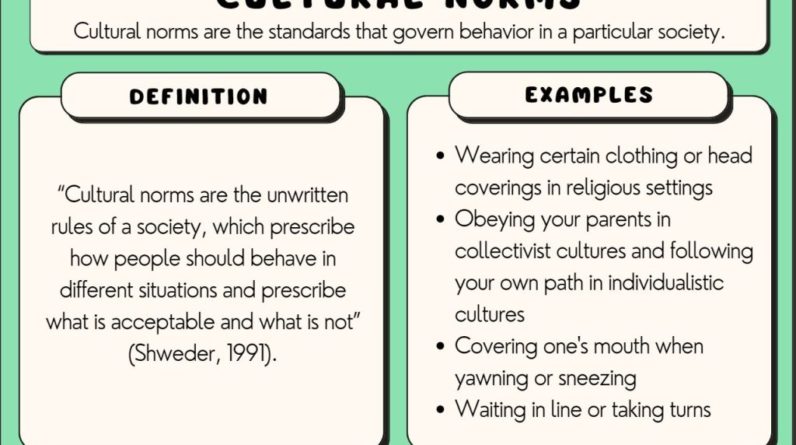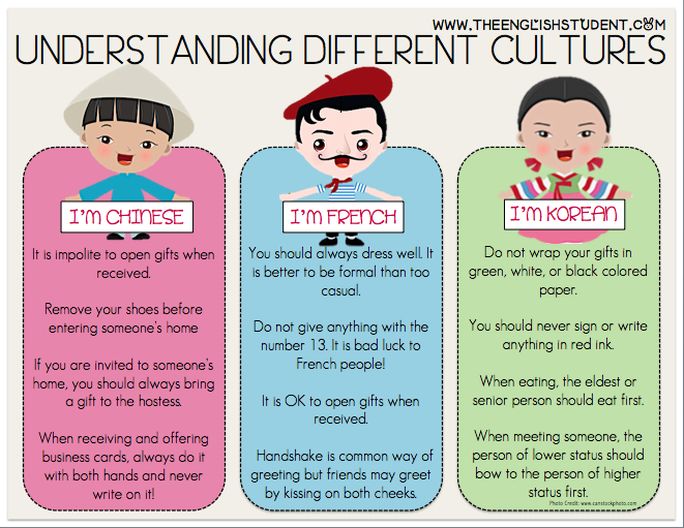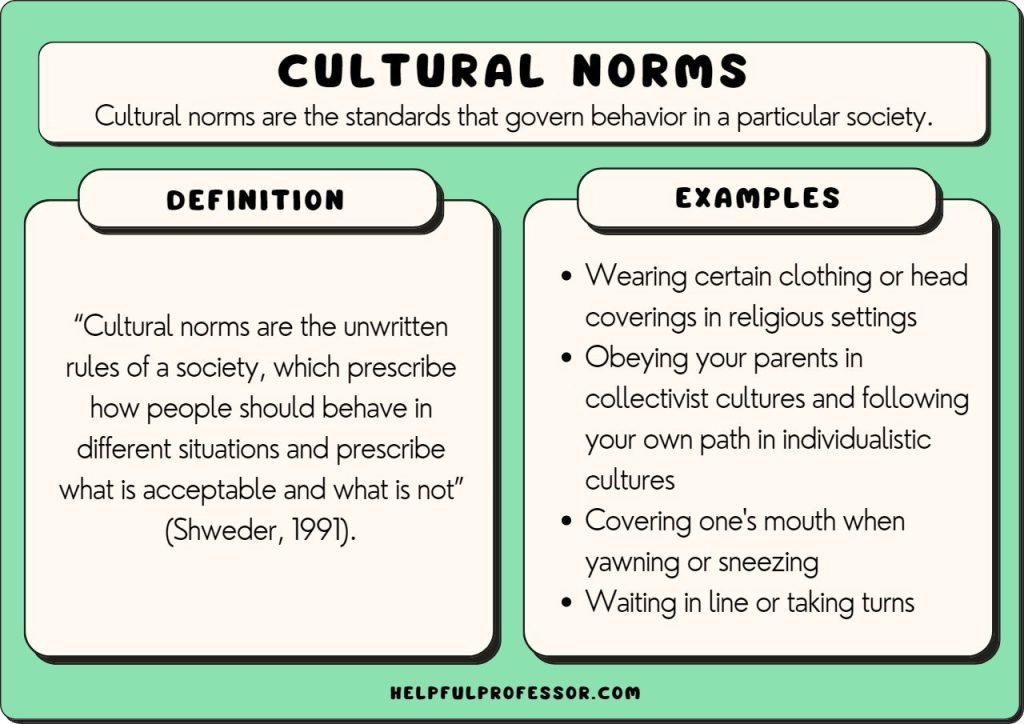
If you’re planning a trip to a new country or exploring a different culture, it’s natural to wonder about the local customs and etiquette. Understanding and respecting the cultural norms can greatly enhance your experience as a tourist and help you avoid any unintentional faux pas. In this article, you’ll find useful information about the cultural norms and etiquette that you should be aware of when traveling. Whether it’s knowing when to remove your shoes before entering someone’s home or understanding the appropriate way to greet locals, this article will provide you with valuable insights to ensure a smooth and respectful journey.
Curious to know more about the cultural norms and etiquette you should be aware of as a tourist? You’ve come to the right place! This article will delve deeper into the customs and traditions of different countries, giving you a better understanding of how to navigate unfamiliar territory with respect and sensitivity. From table manners to dress codes, communication styles to social interactions, you’ll discover everything you need to know to make the most out of your travels. So, if you want to make a positive impression and create meaningful connections with locals, keep reading. It’s time to broaden your cultural horizons and become a well-informed, culturally-aware tourist.
Yes, Thailand has its own set of cultural norms and etiquette that visitors should be aware of to show respect to the local customs and traditions. Observing these practices will help you have a more enjoyable and positive experience during your visit. Here are some essential cultural norms and etiquette to keep in mind:
1. Wai Greeting: The wai is a traditional Thai greeting performed by placing your palms together in a prayer-like gesture and bowing slightly. Use the wai when greeting locals, especially elders or those in positions of respect.
2. Dress Code: When visiting temples, palaces, or any religious sites, dress modestly. Avoid wearing revealing clothing, shorts, or sleeveless tops. Cover your shoulders and knees as a sign of respect.
3. Removing Shoes: It is customary to remove your shoes before entering temples, homes, and certain shops or establishments. Look for signs indicating when you should take off your shoes.
4. Pointing Feet: In Thai culture, the feet are considered the lowest and dirtiest part of the body, while the head is the most sacred. Avoid pointing your feet at people, religious images, or Buddha statues.
5. Public Displays of Affection: Public displays of affection, such as kissing or hugging, are not commonly seen in Thai culture. It’s best to keep intimate gestures private and display respectful behavior in public.
6. Respecting Monarchy: Thailand holds great reverence for its royal family. Show respect and refrain from making disrespectful comments or actions towards the monarchy.
7. Bargaining: While bargaining is common in markets and street stalls, do so with a smile and a friendly attitude. Avoid being overly aggressive or disrespectful when negotiating prices.
8. Handling Money: Avoid stepping on Thai currency, as it bears the image of the king. Also, do not use money to fan yourself or for any other disrespectful purpose.
9. Pointing with Feet: Never point at people or objects with your feet, as it is considered rude.
10. Tipping: Tipping is not customary in Thailand, but it is appreciated in tourist areas. If you receive exceptional service, a small tip is a kind gesture.
11. Politeness: Thai culture places great importance on politeness and avoiding confrontation. Speak softly and avoid raising your voice or showing anger in public.
12. Accepting Gifts: When receiving or giving gifts, use both hands to show respect.
By observing these cultural norms and etiquette, you will demonstrate your appreciation for Thai culture and create positive interactions with locals. The Thai people are generally warm and welcoming, and showing respect for their customs will make your trip even more enjoyable.

This image is property of s-media-cache-ak0.pinimg.com.
Understanding Cultural Norms and Etiquette as a Tourist
As a tourist, it is essential to have an understanding of the cultural norms and etiquette of the country you are visiting. Being aware of these customs will not only show respect for the local culture but also enhance your travel experience. In this article, we will explore various aspects of cultural awareness and provide tips on how to navigate different situations with sensitivity and respect.
The Importance of Cultural Awareness
Cultural awareness is crucial when traveling to a foreign country. It allows you to understand the local customs and avoid unintentionally offending the locals. By immersing yourself in the local culture, you can gain a deeper appreciation for the place you are visiting. It is important to remember that what may be acceptable in your home country may not be the same elsewhere. Therefore, familiarizing yourself with the cultural norms of your destination is essential.
Researching before Your Trip
Before embarking on your journey, take the time to research the cultural norms and etiquette of the country you plan to visit. Look for information on dress codes, greetings, table manners, and other important cultural practices. Guidebooks, websites, and even social media can be valuable sources of information. By being well-informed, you can avoid cultural faux pas and ensure a smoother and more enjoyable trip.
Dress Code and Appearance
Appropriate Clothing in Different Countries
It is essential to respect the dress code in the country you are visiting. Different cultures have different expectations when it comes to clothing, and what may be deemed appropriate in one country may be considered offensive or disrespectful in another. For example, in some conservative countries, it is important to dress modestly by covering your shoulders and knees when visiting places of worship or conservative neighborhoods. In contrast, other countries may have more relaxed dress codes. Research the dress code of the country you are visiting and pack accordingly.
Respecting Local Customs
Apart from the dress code, it is also important to respect local customs related to appearance. For example, certain cultures may frown upon visible tattoos or excessive piercings. If you have tattoos or piercings, it is advisable to cover them in public places or when visiting religious sites to avoid causing offense. By respecting local customs, you demonstrate your willingness to learn and adapt to the cultural norms of the country you are visiting.
Covering Tattoos and Piercings
If you have tattoos or piercings, it is a good idea to cover them when visiting countries with conservative cultures. Although tattoos may be a form of self-expression in your home country, they may be perceived differently in other cultures. To avoid any potential misunderstandings or causing offense, it is best to err on the side of caution and cover any visible tattoos or remove certain piercings. This shows respect for the local customs and helps you blend in with the local population.
Greetings and Gestures
Understanding Local Greetings
Greetings vary from culture to culture, so it is important to understand the appropriate way to greet locals in the country you are visiting. In some cultures, a handshake is the most common form of greeting, while others may prefer a bow or a kiss on the cheek. It is advisable to observe and mimic the locals’ greetings to avoid any misunderstandings or awkward situations. If you are unsure, a simple smile and a nod are seen as respectful in most cultures.
Respecting Personal Space
Personal space varies across cultures, and it is important to respect the local norms and avoid invading someone’s personal space inadvertently. In crowded areas, personal space may be limited, and people may stand closer to each other than you are accustomed to. It is important to adapt to these situations and not feel uncomfortable or offended. Similarly, in countries where personal space is highly valued, it is important to maintain a respectful distance when interacting with locals.
Appropriate Use of Hand Gestures
Hand gestures can greatly vary in meaning from one culture to another. What may be a harmless gesture in your home country could be offensive or rude in another. For example, the “thumbs-up” gesture, commonly used to express approval, can be interpreted as offensive in certain cultures. Before using hand gestures, it is important to research their meanings in the local culture or, when in doubt, refrain from using them altogether to avoid any miscommunication or offense.
Dining Etiquette
Table Manners across Cultures
Table manners can vary significantly from one culture to another. To avoid unintentionally committing a dining etiquette faux pas, it is advisable to learn about the specific customs of the country you are visiting. Some cultures may use their hands to eat, while others may use chopsticks or utensils. In some countries, burping after a meal is seen as a sign of appreciation, while in others it is considered impolite. Familiarizing yourself with the dining etiquette of your destination will enable you to fully enjoy and respect the local culinary traditions.
Use of Utensils and Eating Habits
The use of utensils can vary across different cultures. While using your hands may be acceptable in certain countries, it may be considered rude in others. It is important to observe and follow the lead of locals when it comes to eating habits and utensil usage. If you are unsure, it is always best to ask for guidance or observe others around you. By showing respect for local customs, you can fully immerse yourself in the dining experience and avoid any unintentional breaches of etiquette.
Respecting Local Food Customs
Respecting local food customs is essential when visiting a foreign country. Try to embrace the local cuisine and be open to trying new flavors and dishes. However, it is also important to be mindful of any dietary restrictions or cultural practices associated with food. For example, there may be certain foods that are considered sacred or taboo in certain cultures. By being respectful of these customs, you show appreciation for the local traditions and avoid causing offense.

This image is property of helpfulprofessor.com.
Communication and Language
Learning Basic Phrases
Learning a few basic phrases in the local language can go a long way in showing respect and building connections with the locals. Simple greetings like “hello,” “thank you,” and “goodbye” can make a positive impression and help bridge the language barrier. Locals appreciate the effort made by tourists to communicate in their language, even if it is just a few words. Carry a phrasebook or use language learning apps to familiarize yourself with some useful phrases before your trip.
Speaking Clearly and Respectfully
When communicating with locals, it is important to speak clearly and respectfully. Speak slowly and pronounce your words carefully to ensure that you are understood. Avoid using slang or colloquial expressions that may not be familiar to the locals. Show patience and respect when conversing, even if there is a language barrier. Locals will appreciate your efforts to communicate respectfully and will be more willing to help you in return.
Understanding Cultural Communication Styles
Communication styles can greatly vary across cultures. Some cultures may place emphasis on directness and openness while others may value subtlety and nonverbal cues. It is important to adapt to the communication style of the country you are visiting. Pay attention to nonverbal cues such as body language, facial expressions, and tone of voice to better understand the locals and avoid any potential misunderstandings. By being attentive to cultural communication styles, you can navigate conversations more effectively and show respect for the local customs.
Respecting Sacred Places
Understanding Religious Practices
When visiting a foreign country, it is important to understand and respect the religious practices of the locals. Familiarize yourself with any customs or rituals associated with religious sites. For example, in some cultures, it is necessary to cover your head or remove your shoes before entering a place of worship. Research and learn about these practices to ensure that you are respectful and mindful when visiting religious sites.
Appropriate Behavior in Holy Sites
When visiting holy sites, it is important to behave appropriately and show respect for the sacredness of the place. Keep your voice low and refrain from disruptive behavior such as phone conversations or loud laughter. Follow any instructions or rules given by the local authorities or religious leaders. By respecting the sanctity of these sites, you demonstrate cultural sensitivity and honor the beliefs and customs of the local population.
Dress Code and Conduct
In many religious sites, there are often dress codes that visitors are expected to adhere to. It is important to dress modestly and cover your shoulders, knees, and sometimes even your head when visiting these places. Both men and women should be aware of these guidelines and dress accordingly. Additionally, it is important to avoid any behavior that may be seen as disrespectful or intrusive. By adhering to the dress code and conducting yourself appropriately, you show reverence for the religious customs and beliefs.

This image is property of cities2explore.com.
Gift-Giving and Hospitality
Appreciating Local Traditions
Gift-giving can play a significant role in some cultures, and it is important to be aware of the local customs when it comes to giving and receiving gifts. In some countries, certain gifts may have specific meanings that differ from your own culture. By understanding and appreciating the local gift-giving traditions, you can show respect and foster positive interactions with the locals.
Choosing Appropriate Gifts
When selecting gifts for locals, it is important to choose items that are culturally appropriate and respectful. Avoid giving gifts that may be considered offensive or inappropriate. Research any cultural taboos or customs that may affect your choice of gifts. Additionally, it is important to be mindful of the value of the gift, as some cultures may view extravagant gifts as inappropriate or uncomfortable. By selecting appropriate gifts, you can show appreciation for the local culture and create meaningful connections with the locals.
Accepting and Declining Invitations
Hospitality is highly valued in many cultures, and it is common to receive invitations from locals during your travels. When receiving an invitation, it is important to respond graciously and in a timely manner. If you are unable to accept the invitation, politely decline and express your gratitude for the offer. If you do accept, it is important to arrive on time and bring a small gift as a token of appreciation. By accepting and declining invitations respectfully, you show appreciation for the local hospitality and contribute positively to cross-cultural interactions.
Public Behavior and Etiquette
Respecting Local Customs and Laws
When visiting a foreign country, it is essential to respect the local customs and laws. Familiarize yourself with any cultural or legal restrictions that may be in place. For example, some countries may have specific rules regarding public displays of affection, alcohol consumption, or even specific gestures. Adhering to these restrictions shows respect for the local culture and helps ensure a positive interaction with local authorities and the local population.
Tipping and Bargaining
Tipping practices can vary across different countries. In some cultures, tipping is not customary, while in others, it is expected. Research the tipping customs of the country you are visiting to ensure that you are appropriately tipping service providers such as waitstaff, drivers, and tour guides. Similarly, in certain countries, bargaining is a common practice when shopping in markets or dealing with street vendors. Familiarize yourself with the local bargaining customs to avoid overpaying or offending the sellers.
Understanding Cultural Notions of Politeness
Politeness norms can differ significantly from one culture to another. What may be considered polite behavior in your home country may be perceived differently elsewhere. It is important to be mindful of these cultural differences and adapt your behavior accordingly. For example, some cultures may place great importance on addressing elders or strangers with specific honorifics, while others may have different expectations of personal space in public places. By understanding and respecting cultural notions of politeness, you can navigate social interactions more smoothly and avoid causing offense.

This image is property of cdn.innovativelanguage.com.
Photography and Privacy
Seeking Consent before Taking Photos
While it is tempting to document every moment of your trip, it is important to remember that not everyone may be comfortable with having their photo taken. Before taking photos of people, especially locals, always seek their permission. This displays respect for their privacy and their cultural customs. If someone declines or seems uncomfortable, be understanding and refrain from taking their photo. Remember that respect for privacy should always be a priority, even in bustling tourist destinations.
Respecting No-Photography Zones
Some locations and venues may have designated no-photography zones, especially in religious sites or areas of cultural significance. It is important to respect these restrictions and refrain from taking photos in these areas. Signs or verbal instructions from the local authorities should be followed diligently. By adhering to these regulations, you show respect for local customs and contribute to the preservation of cultural heritage.
Understanding Privacy Boundaries
Privacy boundaries differ from person to person and can be influenced by cultural factors. Respect personal boundaries when taking photos and avoid capturing shots that may invade someone’s privacy. Be aware of the people around you and ask yourself if it is appropriate to take a photo in that particular context. Always prioritize respect for others’ privacy and remember that your travel experiences should not infringe upon the rights or comfort of others.
Conclusion
As a responsible and respectable tourist, it is crucial to have an understanding of the cultural norms and etiquette of the country you are visiting. By taking the time to research and familiarize yourself with these customs, you can navigate different situations with sensitivity and respect. Embrace cultural diversity, enhance your travel experiences, and build positive connections with locals by demonstrating your willingness to adapt and learn from different cultures. By following these guidelines, you can become a responsible and respectful traveler, fostering cultural understanding and appreciation wherever you go. Enjoy your travels and may they be filled with enriching experiences!

This image is property of intentionaltravelers.com.






